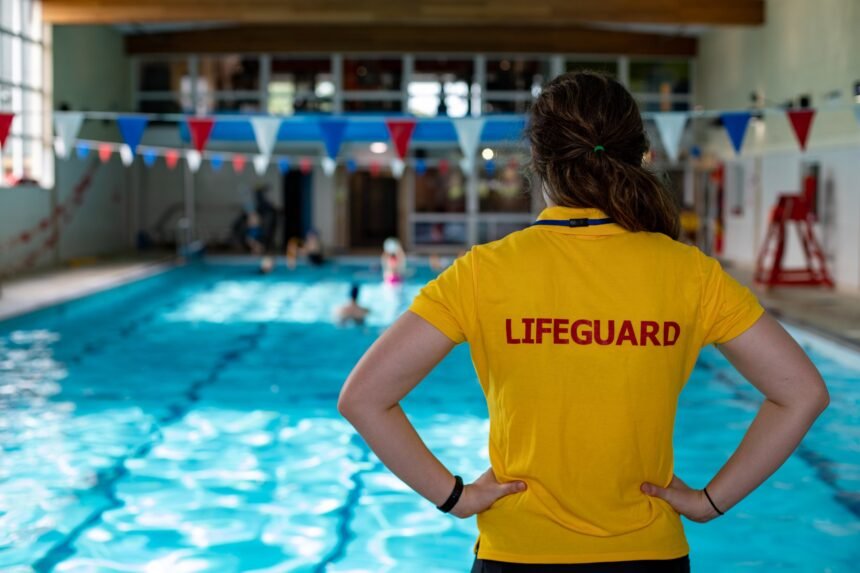Lifeguarding is more than just a summer job; it’s a responsibility that involves ensuring the safety of others in aquatic environments. As the demand for highly skilled lifeguards grows, enhancing and updating lifeguarding skills has become crucial. With online training now available, improving your skills is more accessible than ever. The American Lifeguard Association (ALA) is at the forefront of offering top-notch lifeguarding courses that can help you unlock your full potential as a professional lifeguard. In this article, we’ll explore how online training can significantly improve your skills and prepare you for the challenges of modern lifeguarding.
The Evolution of Lifeguard Training
Traditionally, lifeguard training took place in classrooms and pools, which limited opportunities for continuous learning, especially for those with tight schedules or limited access to in-person classes. However, the rise of online learning has changed the landscape. The American Lifeguard Association has embraced technology to offer Lifeguarding skills improvement online through online platforms, making it easier for both aspiring and experienced lifeguards to train and stay updated on the latest safety protocols.
With online courses, lifeguards now have the flexibility to learn at their own pace, revisit course materials, and practice essential techniques from anywhere. This is especially beneficial for those who may already be working as lifeguards and need to balance training with their job responsibilities.
Why Lifeguarding Skills Matter
Being a lifeguard requires a broad range of physical, mental, and technical skills. Whether you are overseeing a busy beach or a quiet pool, your ability to prevent and respond to emergencies is key to ensuring the safety of swimmers. Enhancing these skills continuously is vital to maintaining a high standard of care.
Here are some key skills that lifeguards need to improve and maintain throughout their careers:
- Rescue Techniques
Lifeguards must be proficient in various rescue techniques. These include swimming to a distressed swimmer, using rescue equipment, and transporting victims safely back to shore or the poolside. Lifeguard training courses from the American Lifeguard Association emphasize these skills through interactive online lessons that simulate real-life situations. - First Aid and CPR
Lifeguards are often the first responders during an emergency, making first aid and CPR skills critical. Lifeguard courses online allow lifeguards to practice and perfect these skills through detailed video tutorials and virtual simulations. Continuous education in first aid ensures that lifeguards remain ready to handle medical emergencies, including drowning, heart attacks, and injuries. - Communication and Teamwork
Effective communication and teamwork are essential in lifeguarding. Lifeguards need to work together and quickly communicate with swimmers, fellow guards, and emergency services. Online courses provide role-playing scenarios and interactive modules that emphasize how to communicate in high-stress situations. - Fitness and Endurance
Lifeguarding requires a high level of physical fitness. Lifeguards need strength, stamina, and agility to respond to emergencies swiftly. Through online fitness training programs, like those offered by the American Lifeguard Association, lifeguards can follow guided workouts designed to improve cardiovascular health, muscular strength, and swimming endurance.
The Benefits of Online Lifeguard Skill Improvement
The American Lifeguard Association has embraced the digital age, making it easier for lifeguards to develop new skills or brush up on existing ones through online platforms. Below are some benefits of improving your lifeguarding skills online:
1. Flexibility
One of the most significant advantages of online lifeguard training is the flexibility it provides. Lifeguards can access courses and training materials at any time, allowing them to fit education into their schedules, whether they are full-time students or working professionals. Lifeguards can learn at their own pace without the pressure of meeting classroom deadlines.
2. Cost-Effective Learning
Online courses are often more affordable than in-person classes. By opting for online lifeguard skill improvement programs through the American Lifeguard Association, you can save money on travel, accommodation, and other expenses associated with attending in-person courses.
3. Continuous Learning
Lifeguarding isn’t a static profession. Water safety guidelines and rescue protocols change over time, and it’s essential for lifeguards to stay updated. Online training ensures that lifeguards are constantly learning new information and staying up-to-date with industry standards. The American Lifeguard Association provides access to the latest certifications, safety regulations, and rescue techniques through their comprehensive online courses.
4. Simulated Scenarios
Through the use of technology, online courses can simulate lifeguarding emergencies. These simulations enable lifeguards to practice their responses in a controlled virtual environment. Interactive quizzes and case studies allow lifeguards to apply their knowledge and get real-time feedback, ensuring they understand how to handle various situations before facing them in real life.
5. Access to Experts
Online courses offered by organizations like the American Lifeguard Association provide access to experts in the field of lifeguarding and water safety. Lifeguards can receive guidance from experienced instructors, participate in webinars, and even engage in one-on-one mentorship sessions. This access to expertise ensures that the skills learned online are of the highest quality.
How to Make the Most of Online Lifeguarding Skill Improvement
Online lifeguard training is an excellent opportunity to grow as a professional, but maximizing the benefits requires commitment and the right approach. Here are some tips for making the most of your online training experience:
1. Set Goals
Before starting any online course, establish clear goals for what you want to achieve. Whether you are looking to improve your rescue techniques or enhance your CPR skills, having specific objectives will keep you focused throughout the course.
2. Stay Disciplined
The flexibility of online courses can also be a challenge. Without set classroom times, it’s easy to procrastinate. Set a study schedule and stick to it to ensure you make steady progress.
3. Engage with the Material
Take the time to engage fully with the course materials. Watch videos, participate in simulations, and complete quizzes to reinforce your learning. The more you interact with the content, the better you will retain the information.
4. Seek Feedback
Don’t hesitate to ask for feedback from instructors or peers. Many online platforms offer discussion boards or mentorship opportunities, allowing you to connect with others in the field and get valuable input on your skills and performance.
Conclusion: Unlock Your Potential with the American Lifeguard Association
Online training has revolutionized the way lifeguards improve their skills, providing them with convenient, affordable, and effective ways to stay at the top of their game. The American Lifeguard Association offers a variety of courses tailored to meet the needs of lifeguards at every stage of their careers. Whether you’re looking to enhance your rescue skills, stay updated on first aid techniques, or improve your fitness, online training offers the perfect solution. By taking advantage of these online programs, you can unlock your full potential as a lifeguard and continue to provide a vital service in safeguarding lives at pools and beaches across the world.









